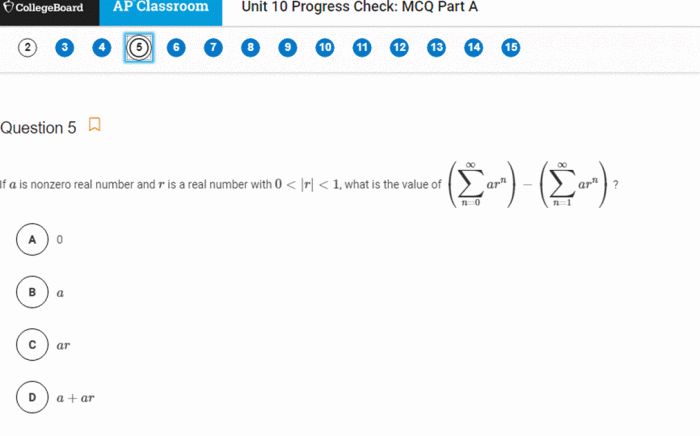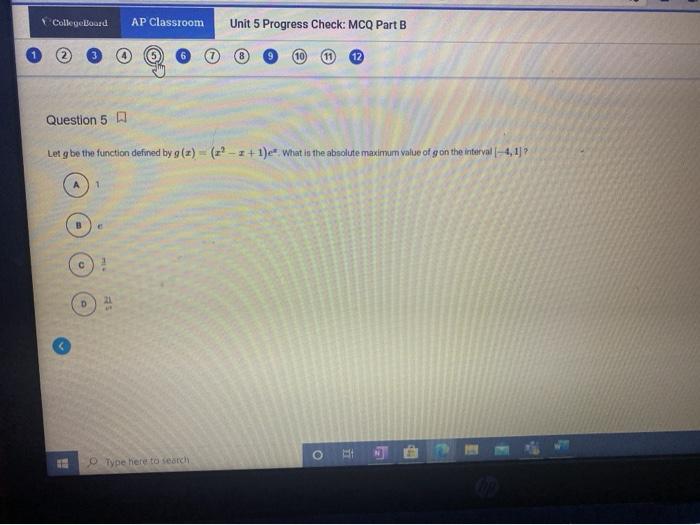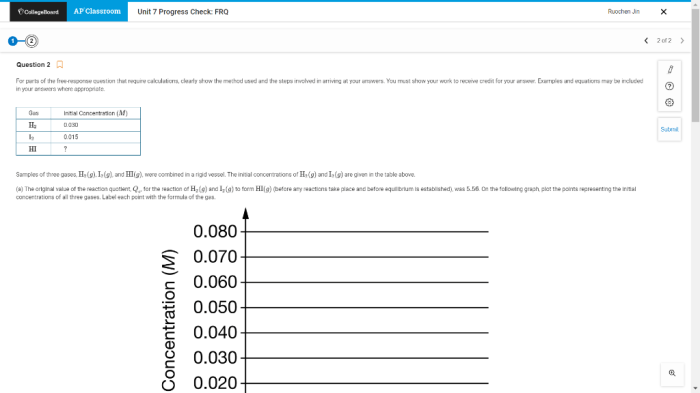Embark on an exhilarating journey with the AP Lang Unit 6 Progress Check, a crucial milestone in your rhetorical analysis odyssey. This comprehensive assessment unveils your mastery of persuasive techniques, text analysis, and argumentative writing, empowering you to navigate the complexities of language and communication.
Prepare to delve into the depths of rhetorical analysis, exploring the intricate tapestry of language and its persuasive power. Hone your skills in identifying and interpreting rhetorical devices, unlocking the secrets of effective communication.
Overview of AP Lang Unit 6 Progress Check
The AP Lang Unit 6 Progress Check is a valuable assessment tool designed to evaluate your progress in mastering the key concepts covered in Unit 6. It provides insights into your strengths and areas for improvement, helping you refine your preparation for the AP Lang Exam.The
progress check comprises various sections, each focusing on specific areas of the unit. It includes multiple-choice questions, short answer questions, and an essay prompt. The questions are structured to assess your understanding of rhetorical devices, persuasive techniques, and the ability to analyze and interpret texts.
Key Areas of Focus
The progress check emphasizes several key areas of focus:
- Rhetorical Devices:You will be tested on your ability to identify and analyze the use of rhetorical devices, such as metaphors, similes, and parallelism, to enhance the impact of a text.
- Persuasive Techniques:The check will evaluate your understanding of persuasive techniques, including ethos, pathos, and logos, and your ability to analyze how they are employed in various texts.
- Text Analysis and Interpretation:You will be required to analyze and interpret complex texts, demonstrating your ability to extract meaning, identify patterns, and evaluate the author’s purpose and perspective.
Rhetorical Analysis Skills Assessed

The AP Lang Unit 6 Progress Check evaluates students’ proficiency in various rhetorical analysis skills. These skills are crucial for success in AP Lang and beyond, enabling students to critically examine and understand persuasive texts.
One key skill tested is the ability to identify the author’s purpose, audience, and context. Understanding the author’s intent, the intended audience, and the surrounding circumstances helps students comprehend the text’s overall message and its impact on readers.
As you wrap up your AP Lang Unit 6 Progress Check, it’s time to explore something truly refreshing. Have you heard of Splendid Greens Cava ? It’s a sparkling non-alcoholic beverage that’s made with real fruit juices and botanicals. Its crisp and invigorating taste will help you stay focused as you power through the rest of your Unit 6 Progress Check.
Identifying Rhetorical Devices
The check also assesses students’ ability to recognize and analyze rhetorical devices. These devices, such as metaphors, similes, and hyperboles, enhance the text’s persuasiveness and impact. By identifying these devices, students can decipher the author’s strategies for influencing readers.
Evaluating Argument Structure
Furthermore, students are expected to evaluate the structure and logic of the argument presented in the text. This involves identifying the main claim, supporting evidence, and any counterarguments or rebuttals. By analyzing the argument’s structure, students can assess its validity and effectiveness.
Text Selection and Analysis

The texts selected for analysis in the AP Lang Unit 6 Progress Check are carefully chosen to assess students’ rhetorical analysis skills. These texts represent a range of genres, styles, and perspectives, ensuring that students can demonstrate their ability to analyze complex and diverse written works.
The types of texts that may be included in the check include:
- Literary texts:Novels, short stories, poems, and plays
- Nonfiction texts:Essays, articles, speeches, and reviews
- Multimedia texts:Videos, podcasts, and websites
When analyzing texts, it is important to pay attention to the following key elements:
- Purpose:What is the author’s intended message or goal?
- Audience:Who is the author writing for?
- Context:When and where was the text written?
- Rhetorical devices:What techniques does the author use to persuade, inform, or entertain the reader?
By carefully considering these elements, students can gain a deeper understanding of the text’s meaning and effectively identify the author’s rhetorical strategies.
Argumentative Writing
The argumentative essay in the AP Lang Unit 6 Progress Check is a critical component that assesses your ability to develop and support a well-reasoned argument. It requires you to demonstrate a strong understanding of the rhetorical strategies employed in argumentative writing.
Structure and Components
An effective argumentative essay follows a clear structure, typically consisting of the following components:
- Introduction:Introduces the topic, establishes the context, and presents the thesis statement.
- Body Paragraphs:Develops the main arguments, provides evidence, and refutes opposing views.
- Counterargument:Acknowledges and addresses opposing viewpoints, demonstrating a balanced perspective.
- Conclusion:Summarizes the main arguments, restates the thesis, and provides a final thought.
Developing a Strong Thesis Statement
The thesis statement is the central claim of your argument. It should be clear, specific, and arguable. Avoid making broad generalizations or stating facts that cannot be disputed.
Supporting Arguments, Ap lang unit 6 progress check
To support your thesis, provide evidence from credible sources, such as research, statistics, or expert opinions. Use specific examples and logical reasoning to demonstrate the validity of your arguments. Consider different perspectives and anticipate potential counterarguments to strengthen your position.
Time Management and Test-Taking Strategies

Effective time management and strategic test-taking approaches are crucial for success on the AP Lang Unit 6 Progress Check. Understanding the importance of these strategies and implementing them effectively can help students maximize their performance during the assessment.
To ensure efficient time allocation, students should familiarize themselves with the test format and time constraints. Prioritize tasks based on their difficulty and allocate more time to complex questions. It’s essential to pace oneself throughout the test to avoid rushing or spending excessive time on any particular question.
Handling Stress and Staying Focused
Managing stress and maintaining focus during the test is equally important. Students should practice deep breathing techniques or visualization exercises to calm their nerves. Staying hydrated and taking short breaks can also help maintain alertness and concentration. Additionally, it’s beneficial to review the test instructions carefully and ask clarifying questions if needed to minimize confusion and anxiety.
Preparation and Resources: Ap Lang Unit 6 Progress Check

To ace the AP Lang Unit 6 Progress Check, preparation is key. Here’s a guide to help you get ready:
Recommended Resources
- AP Classroom:Official practice materials, including released exams and scoring rubrics.
- College Board website:Sample questions, study tips, and access to online practice tools.
- Textbooks and class notes:Review your course materials to reinforce concepts.
- Online forums and discussion boards:Connect with other students and teachers for support and insights.
Reviewing Course Materials
Go through your textbooks and class notes, paying attention to the following:
- Rhetorical devices:Identify and analyze the different techniques authors use to persuade and inform.
- Author’s purpose and audience:Understand the writer’s goals and the intended readers.
- Evidence and support:Examine how authors use evidence to support their claims.
Practicing Rhetorical Analysis Skills
The progress check requires strong rhetorical analysis skills. Practice these skills by:
- Analyzing sample texts:Break down passages to identify rhetorical devices and authorial intent.
- Writing rhetorical analyses:Compose essays that demonstrate your understanding of a text’s rhetorical strategies.
- Participating in class discussions:Engage in debates and discussions to develop your critical thinking skills.
FAQ Section
What is the purpose of the AP Lang Unit 6 Progress Check?
The AP Lang Unit 6 Progress Check gauges your progress in rhetorical analysis, argumentative writing, and text analysis, providing valuable feedback on your strengths and areas for improvement.
How should I prepare for the Progress Check?
Thoroughly review course materials, practice rhetorical analysis skills, and engage in practice argumentative writing. Seek additional resources and support as needed.
What types of texts can I expect in the Progress Check?
The Progress Check may include various text types, such as speeches, essays, articles, and literary excerpts, representing diverse perspectives and styles.